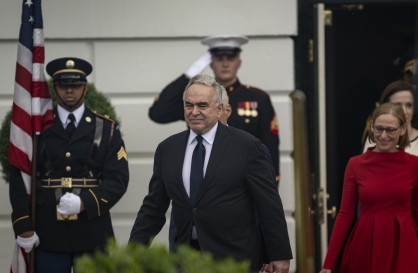South Korea and the United States held annual defense ministers' talks in Seoul on Friday as the allies face tricky issues such as a soon-to-expire intelligence-sharing pact between Seoul and Tokyo and defense cost-sharing negotiations.
Defense Minister Jeong Kyeong-doo and US Secretary of Defense Mark Esper held the 51st Security Consultative Meeting for "in-depth discussions on various pending security issues," the defense ministry said.
Details of their discussions were not immediately available.
Key agenda items included the security situation on the Korean Peninsula and the conditions-based transfer of wartime operational control of South Korean forces from Washington to Seoul, the ministry said in a release.
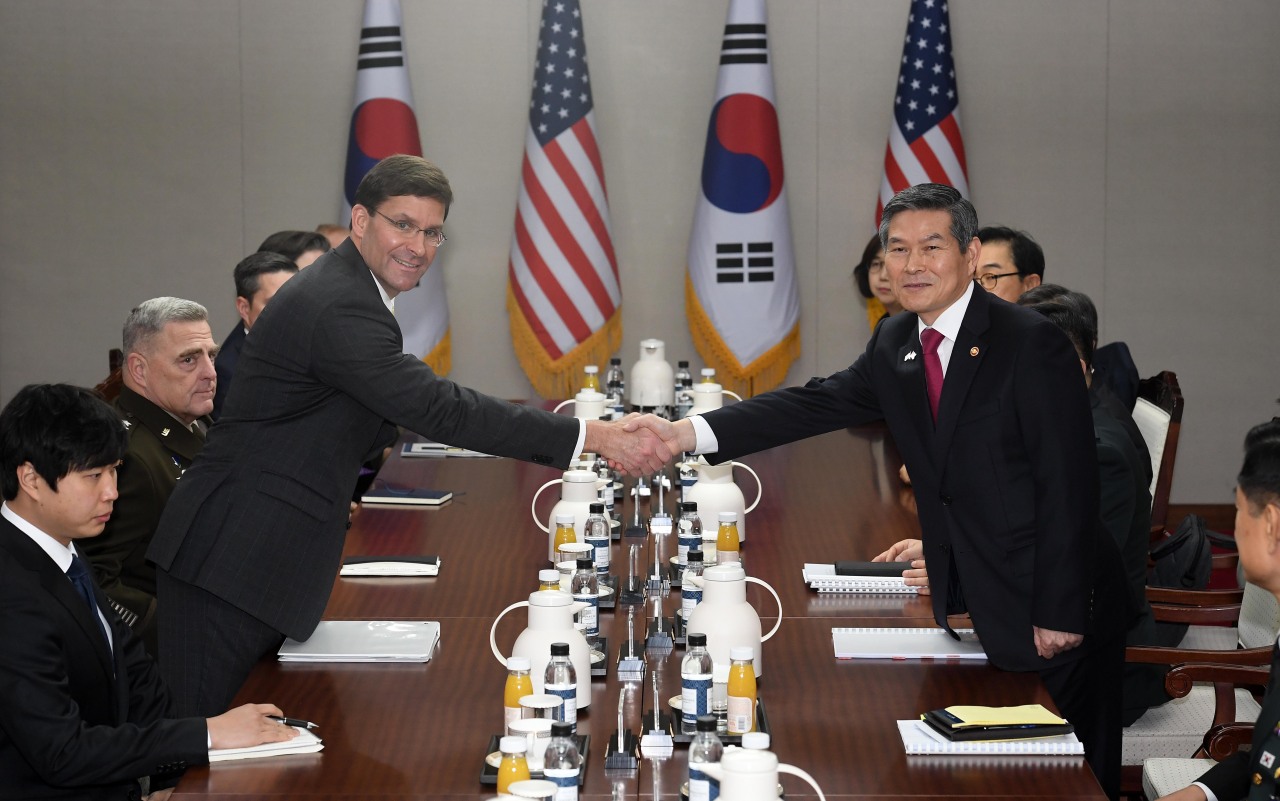 |
(Yonhap) |
Later in the day, the two ministers plan to hold a joint press conference.
This year's meeting is the subject of particular attention as it takes place just a week before South Korea's earlier decision to end the General Security of Military Information Agreement between Seoul and Tokyo takes effect on Nov. 23.
Seoul made the decision in August after Japan imposed export curbs in a row over wartime forced labor.
The US has called for GSOMIA to be renewed as it sees the three-year-old pact as a key trilateral security mechanism to counter threats posed by North Korea and an assertive China that has deepened defense ties with Russia.
Seoul says it can reconsider the GSOMIA decision only if Japan first changes its course.
Speaking to the press en route to Seoul on Wednesday, Esper stressed the need to maintain the pact. "It's critical to sharing intelligence, particularly in a timely manner with regard to any type of North Korean actions," he said, according to a Pentagon transcript.
The Pentagon chief is also expected to press South Korea to increase its share of the expenses for stationing around 28,500 American troops here.
Negotiations are under way between the allies to renew the defense cost-sharing deal, and Washington has reportedly demanded Seoul pay nearly $5 billion annually. Under the current deal, set to expire at year's end, South Korea agreed to pay $870 million a year.
During the press gaggle, Esper said the US has requested "a significant increase in the cost-sharing for our deployed troops," while stopping short of mentioning exact numbers.
The two sides are also expected to discuss what to do with joint military drills they plan to conduct in a scaled-back manner later this month after suspending the massive Vigilant Ace exercises last year to support diplomatic negotiations with North Korea.
In response to Esper's remarks Wednesday that the allies will adjust their exercise posture to help diplomacy work, North Korea on Thursday expressed appreciation for US efforts to keep their denuclearization dialogue going while warning of "shocking punishment" should drills go ahead as planned.
As for the OPCON transition from Washington to Seoul, the ministers will assess the results of the initial operational capability test conducted during their combined exercise in August in order to verify whether Seoul is on course to meet conditions for the transition.
Those conditions are: South Korea's capability to lead the allies' combined defense mechanism, its capacity for initial responses to the North's nuclear and missile threats and a stable security environment on the peninsula and in the region.
"The two sides are to discuss when to conduct a full operational capability test and discuss the schedule for its preparation," the ministry said in a release.
Senior officials from the two countries attended Friday's talks, including Joint Chiefs of Staff Chairman Gen. Park Han-ki; Gen. Choi Byung-hyuk, the deputy commander of the South Korea-US Combined Forces Command; US JCS Commander Gen. Mark Milley; US Forces Korea Commander Gen. Robert Abrams; US Ambassador to South Korea Harry Harris; and Marc Knapper, deputy assistant secretary for Korea and Japan. (Yonhap)

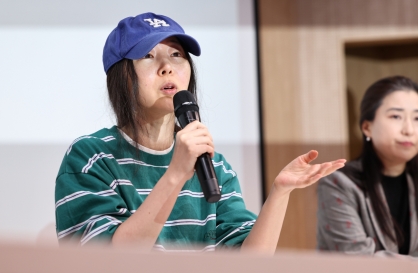
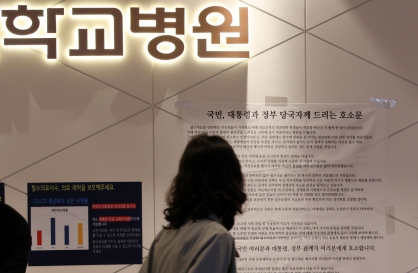
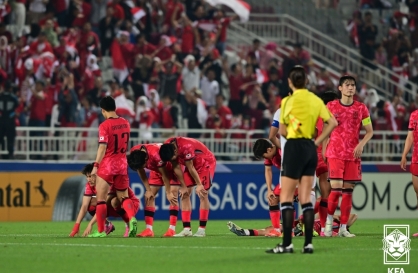
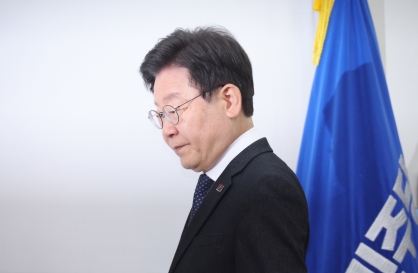

![[Hello India] Hyundai Motor vows to boost 'clean mobility' in India](http://res.heraldm.com/phpwas/restmb_idxmake.php?idx=644&simg=/content/image/2024/04/25/20240425050672_0.jpg)
